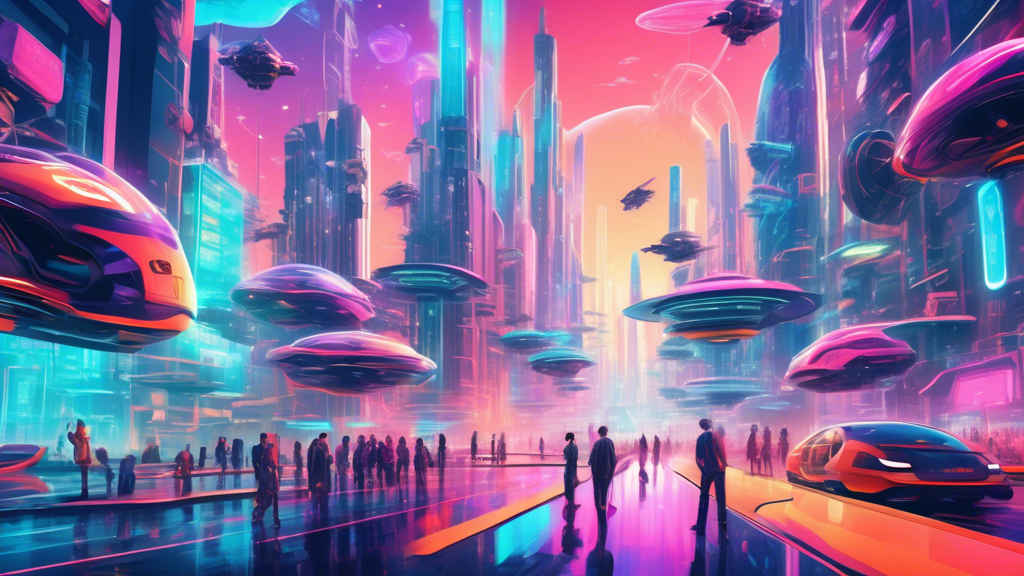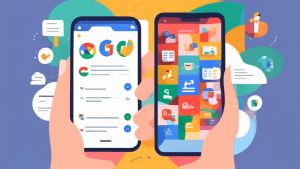The Transformative Power of Cutting-Edge Technologies
In an era defined by relentless innovation, cutting-edge technologies have emerged as the driving force behind unprecedented advancements across industries. These groundbreaking innovations are reshaping our world, empowering us to push the boundaries of what’s possible and unlock new frontiers of progress. From artificial intelligence to blockchain, these technologies are revolutionizing the way we live, work, and interact with the world around us.
Artificial Intelligence: The Rise of Intelligent Machines
Artificial intelligence (AI) stands as a cornerstone of the technological revolution, enabling machines to mimic human intelligence and perform complex tasks with remarkable accuracy. AI algorithms are transforming industries by automating processes, extracting insights from vast datasets, and enabling personalized experiences. From self-driving cars to medical diagnosis, AI is revolutionizing our world in profound ways.
Machine learning, a subset of AI, allows machines to learn from data without explicit programming, enabling them to adapt and improve their performance over time. Deep learning, a more advanced form of machine learning, utilizes artificial neural networks to analyze massive datasets, uncovering intricate patterns and relationships. These advancements in AI are paving the way for intelligent systems that can solve complex problems, automate tasks, and enhance human capabilities.
Blockchain: Revolutionizing Trust and Transparency
Blockchain technology has emerged as a transformative force, revolutionizing the way we think about trust and transparency. At its core, blockchain is a decentralized and distributed ledger that records transactions across multiple computers. This distributed nature ensures that data is immutable and transparent, eliminating the need for intermediaries and fostering trust among participants.
Cryptocurrencies, such as Bitcoin and Ethereum, are among the most well-known applications of blockchain technology. By leveraging blockchain’s secure and transparent nature, cryptocurrencies enable decentralized and peer-to-peer transactions, reducing the reliance on traditional financial institutions. Beyond cryptocurrencies, blockchain is finding applications in supply chain management, healthcare, and digital identity, revolutionizing industries by enhancing security, transparency, and efficiency.
Internet of Things (IoT): Connecting the Physical and Digital Worlds
The Internet of Things (IoT) is connecting the physical and digital worlds like never before, creating a vast network of interconnected devices that can communicate and share data. From smart homes to industrial automation, IoT is transforming our lives by enabling seamless integration, remote monitoring, and intelligent automation.
Smart homes leverage IoT devices to enhance comfort, convenience, and security. Smart appliances, lighting systems, and security cameras can be controlled remotely, providing homeowners with unprecedented control over their living spaces. In industrial settings, IoT sensors and actuators enable real-time monitoring of equipment, optimizing performance, and predicting maintenance needs. This connectivity and data exchange are transforming industries, creating new opportunities for efficiency, innovation, and cost savings.
Extended Reality (XR): Merging the Real and Virtual
Extended reality (XR) encompasses a spectrum of immersive technologies that blend the real and virtual worlds, creating new possibilities for entertainment, education, and training. Virtual reality (VR) immerses users in fully simulated environments, while augmented reality (AR) overlays digital content onto the real world. Mixed reality (MR) combines elements of VR and AR, enabling users to interact with both real-world and digital objects.
VR is transforming gaming, entertainment, and training, allowing users to step into immersive virtual worlds and experience realistic scenarios. AR is enhancing retail experiences by allowing customers to visualize products in their own spaces, while MR is revolutionizing healthcare by providing surgeons with real-time holographic guidance during procedures. These immersive technologies are creating new possibilities for interaction, engagement, and innovation.
Quantum Computing: Unleashing Unprecedented Computational Power
Quantum computing harnesses the principles of quantum mechanics to solve complex problems that are beyond the capabilities of classical computers. Unlike classical computers that rely on bits, quantum computers utilize qubits, which can exist in multiple states simultaneously, enabling them to perform computations at an exponentially faster rate.
Quantum computing has the potential to revolutionize fields such as medicine, materials science, and artificial intelligence. In drug discovery, quantum computers can simulate molecular interactions with unprecedented accuracy, accelerating the development of new treatments. In materials science, they can aid in the discovery of novel materials with enhanced properties. As quantum computing technology continues to advance, we can expect groundbreaking innovations that will transform industries and solve some of the world’s most challenging problems.
Conclusion
Cutting-edge technologies are propelling us into a future of unprecedented possibilities. From artificial intelligence to quantum computing, these innovations are transforming industries, empowering us to solve complex problems, and unlock new frontiers of progress. As these technologies continue to evolve, we can expect even more transformative advancements that will reshape our world in profound ways.
Note: Zing Business Systems provides done-for-you solutions for Google Business Profiles or provides ideas and solutions for the DIY business owner.






No comments! Be the first commenter?